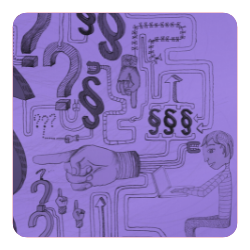Smile please: "Emotional Labor" and its dangers
"The customer is king" - a golden maxim for anyone involved in direct customer contact. Whether it's facial expressions, tone of voice or choice of words, or even body posture - a friendly demeanor is part of the job, but it can also be quite exhausting. This is especially true when the actual state of mind is quite different. To describe exactly this work, the term "Emotional Labor" was established. In general, Emotional Labor means regulating one's own emotions in order to meet the demands of one's professional activity. It is clear that some professions place significantly higher demands on this emotional labor than others. This applies not only to professions in the service sector, but also to other areas of activity such as sales. But what is the significance of emotional labor for companies? And what dangers does it pose for employees?
Emotions as a competitive advantage
The management of emotions has a long tradition in many industries. Those who work in direct customer contact are expected not only to put their actual emotions on the back burner, but also to show reactions appropriate to the situation. Positive emotions are supposed to influence customers in their decisions and encourage loyalty behavior. Never before has the expectation of this emotional work been as high as it is today, since this cognitive component has long been recognized as a possible competitive advantage. It is therefore not surprising that many companies have formal rules for dealing with customers. Emotional lab is thus becoming an integral part of daily work. A basic distinction is made between two strategies: In "deep acting," cognitive techniques are used to evoke a state that actually generates the desired emotion. For example, the mental focus is shifted to a different context, situations are reinterpreted, or relaxation techniques are used. In surface acting, on the other hand, the situationally desired emotional expression is simply imitated - regardless of the actual feelings.
Playing with feelings - a health risk?
However, such emotion regulation does not only have positive effects. Emotional lab means a high cognitive load for employees, which has to be managed in addition to the primary workload. If the feelings shown and experienced contradict each other, this leads to what is known as emotional dissonance - a condition that can not only be unpleasant for employees, but can also lead to stress and burnout in the long term. This is why active action is required: To prevent negative effects of emotional work on mental health, employees in high-risk areas of activity such as sales must be comprehensively sensitized and trained in dealing with cognitive load and stress. With the e-learning channel "Mental Health", Security Island has developed a bundle of training programs that supports companies and their employees in staying mentally healthy and being sensitized to the topic. To prevent emotional work from becoming a health disadvantage for the person concerned and absenteeism due to (chronic) illness from becoming an economic disadvantage for companies, mental health should be an important aspect of internal training - and can become a real competitive advantage.































